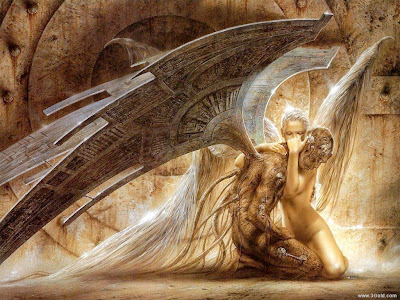What is Story Space?

Occasionally, I refer to "story space" and it occurred to me I ought to explain what I mean. I call it "space" for lack of a better term. It's not spatial, but I find it helpful to envision it as though it were to organize my creating process. (Insert Usual Caveat That Your Creating Process Will Differ). A simple, although false, way to think about it is as word count. This is a good shortcut, as long as you understand it's a shortcut. Take a hypothetical novel from The Unfinished Song series. I'm weird in that I like to pre-determine how many chapters a book will have. Most authors don't do this. But I do, and in the case of this series, every book has seven "chapters." I'm aiming at 70,000 words for each book. That works out to 10,000 word chapters, which are on the long side--the length of a novelette. (Which works out for me, since I package them that way for the Serial.) However, it also means that there's a dist




